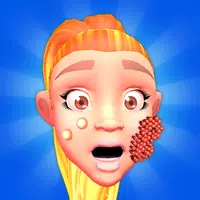Hideo Kojima's Japanese radio podcast KOJI10 offers fascinating insights into the mind behind iconic games like Metal Gear Solid and Death Stranding. In the latest episode, Episode 17, Kojima delves into the innovative use of real-time passage in video games, discussing both mechanics he has used in the past and new concepts he has yet to implement, including one that was cut from the upcoming Death Stranding 2: On The Beach.
Kojima is well-known for utilizing the internal clock of gaming consoles and PCs as a gameplay element. He highlights two examples from Metal Gear Solid 3: Snake Eater, released in 2004 for the PS2. To enhance the realism of jungle survival, food acquired in the game would spoil after a few days in real time. Consuming rotten food could severely sicken Snake, or players could use it strategically by throwing it at enemies to distract them.
Death Stranding 2 Cast

 View 14 Images
View 14 Images



Another example from MGS3 involves the elderly sniper boss, The End. Kojima shares, "Although he is a really tough boss, if the player waits a week, The End will die of old age." Indeed, loading a save from their battle a week later triggers a cutscene where Snake discovers The End's demise.
Kojima also shared a scrapped idea from Death Stranding 2, where Sam's beard would grow over time, requiring players to shave it. "Originally in Death Stranding 2, I was going to have Sam’s beard gradually grow out over time, and the player would have to shave it. If they didn’t, Sam would end up looking unkempt," he explained. However, due to concerns about Norman Reedus's image, this feature was dropped, though Kojima hinted it might appear in future projects.
Kojima further proposed three new game concepts centered around the passage of real time. The first is a life simulation where players start as a child and age into an elderly person. "It starts out with the player being born, you’re a child and then gradually over time you become an adult. In the game, you fight various enemies. Like with the previous example (MGS3’s The End), if you keep playing the game, you will become a 70 or 80 year old man. However, at this age you will be weaker, your eyesight will worsen. When you are a teenager you’ll be able to run faster but by the time you reach 60 you’ll slow down a bit," Kojima explained. This aging process would impact gameplay strategy, with younger characters having physical advantages and older ones possessing more knowledge and experience. Despite Kojima's doubts about its marketability, his co-hosts expressed enthusiasm for this unique "Kojima-like game."
The second concept is a game about nurturing something that matures over time, like wine or cheese, suggesting a potential idle or background game. In contrast, the third idea is a "forgetting game" where the main character loses crucial information and abilities if the player takes breaks. "In this concept, the main character gradually forgets important information and abilities if you take too long a break from the game. For example, if you don’t play every day, the main character will gradually forget things such as 'how to fire their gun or what their job is.' This forgetfulness builds up until finally the player is unable to move. 'Players would have to take a week off work or school to play it,' Kojima laughs."
As fans eagerly anticipate the release of Death Stranding 2 on June 26, they can dive deeper into what's in store by checking out our interview with Kojima and our impressions after playing through the first 30 hours.






